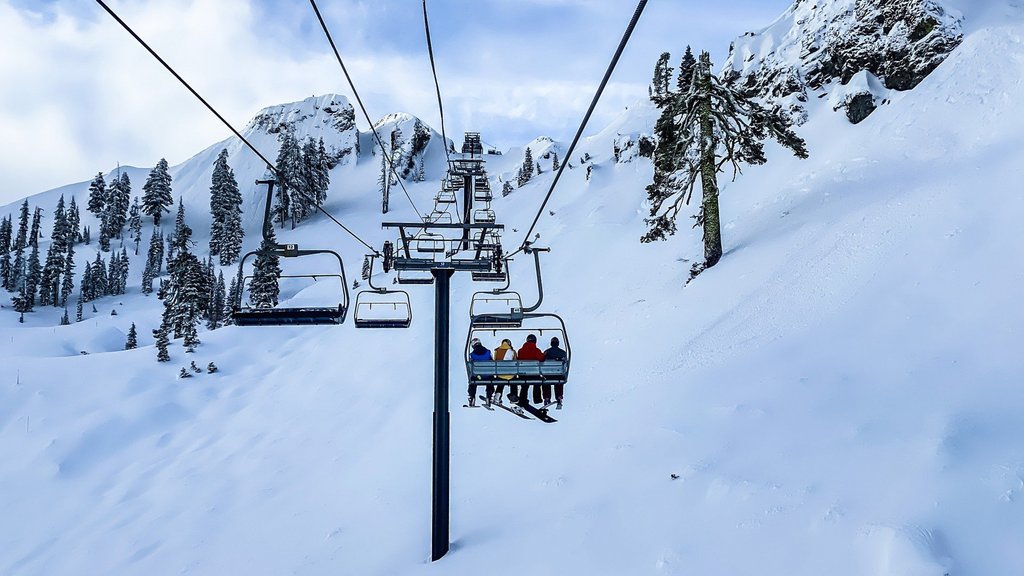Research - 16.10.2020 - 00:00
Black swan wrecks winter tourism
The coronavirus crisis with its unsteady regulatory environment has forced guests and tourism providers to adapt their behaviour. Today, if trips are made at all, they are booked at short notice and in Switzerland or its neighbours. Domestic tourism is admittedly flourishing, but this does not compensate for the lack of international guests. A new report of the Tourism Research Institute at the University of St.Gallen (HSG) has revealed this and much more.

16 October 2020. This year, the success of the coming winter not only depends on the weather, but above all on the customer-friendliness of the safety measures implemented by mountain railways, hotels and restaurants, and the predictability of regulations and travel restrictions. A report based on a survey of experts of the Tourism Research Institute at the Institute for Systemic Management and Public Governance (IMP-HSG) indicated the changes tourism should adapt to in the coming months with regard to the opening of markets and guests’ behaviour.
Successful winter business at risk
Increasing case numbers of those infected with the coronavirus and the worsened economic outlook have depressed hopes of successful winter tourism business. Some have cut their private travel budgets owing to uncertainty with regard to their income, while the demand for tourism overall has sunk. Providers are being called on to implement high standards of hygiene consistently and credibly and this in the most guest-friendly way possible. Attention is focused on guests’ sense of safety and general welfare.
As long as there is no vaccine against the virus, fear of infection remains. Social distancing, infection tests and quarantine in the event of positive tests must be expected. On top of this is the reduced supply of flight connections and seats resulting in higher prices for air tickets. Those who would like to travel under these conditions are more likely to do so in their own or in neighbouring countries, at short notice and depending on the weather. In discussion with sector experts and international colleagues, Christian Laesser, associate professor for tourism and service management and Thomas Bieger, full professor for business administration and tourism, outlined possible tourism developments and trends.
“Homeland” highly appreciated as holiday destination
Switzerland’s gains in domestic guests will probably continue, since due to the coronavirus-related restricted freedom of movement, the Swiss are being forced to get to know and appreciate their homeland as a holiday destination. In the view of the sector experts, this is reinforced by long-term sustainability considerations, according to which increasing numbers of people feel committed to protecting the environment and flying less. However, should more affordable flights once again increase, people may yet once again give way to their deep-seated desire for travel and exploration.
In general, the tourism experts agree: In the long term, demand will once again increase with safety. Supply prices could be higher than before the coronavirus pandemic in the short to medium term due to isolated capacity bottlenecks as a result of insolvencies. Consequently, they expect fewer, but longer journeys. The trend towards long-term stays will also be supported by experience with home or remote office working during the lockdown phase. Working will also be possible at the holiday location, as a result of which interest in longer stays and consequently holiday homes ought to increase. The MICE domain is the loser (Meetings, incentives, conferencing, events), which is struggling with overcapacity.
Capitalise on digitalisation boom
For tourism providers this means that work safety, health protection and hygiene will become even more important in the future. Such health crises could recur. They should capitalise on the digitalisation boom that arose during the pandemic in their future business models and production processes. In general, tourist services cannot be stored and sold later. Consequently, lost turnover is lost forever.
Sector experts advise providers to minimise costs, optimise processes and make use of optional financing from municipalities, shareholders and/or regular guests and other financiers. Companies are facing the almost unsolvable task of simultaneously preserving liquidity and preventing insolvency. This is a considerable challenge, especially for system-relevant companies and companies that have recently made significant investments. The tourism alliance is urging financial relief, such as remission of the repayments of Covid emergency loans. Nevertheless, many companies will be unable to avoid declaring insolvency in the coming months.
The study “The future of tourism with and after SARS-CoV-2: continuous small steps and setbacks on the way to a temporary new normality” can be accessed via the following link online: https://www.alexandria.unisg.ch/261211/
Picture: Pixabay / derwiki
More articles from the same category
This could also be of interest to you
Discover our special topics
















